Ghosts of Tsushima | Samurai movies to watch before you play
"Ghosts of Tsushima" releases today. The highly anticipated Playstation 4 game is an open-world epic that transpires after the first Mongol invasion of Japan in 1274. Jin Sakai, one of the last remaining samurai on the island of Tsushima, must go on a journey to learn new skills and keep the Mongol invaders at bay.
In light of "Ghosts of Tsushima," here's a list of some essential samurai ("chanbara") or samurai-inspired cinema that complement the game. Samurai cinema dominated Japan for much of its filmmaking history, used as an allegory to discuss pressing social issues that would otherwise have been banned by the country's post-World War II government. This same ethos is why we got films like Godzilla (1954) as a metaphor for the devastation of nuclear war, for example.
Take a look at these titles, all of which are worth your time and some of which are considered classics of world cinema:
Akira Kurosawa
Rashomon (1950) | Seven Samurai (1954) | The Hidden Fortress (1958) | Yojimbo (1961)
It's impossible to talk about samurai films without talking about Akira Kurosawa. The godfather of not just the genre, but of Japanese cinema writ large, Kurosawa's stamp on chanbara cinema is undeniable. I could write an entire list of essential samurai cinema comprised entirely of Kurosawa's work, but I've limited myself to just four for the sake of variety.
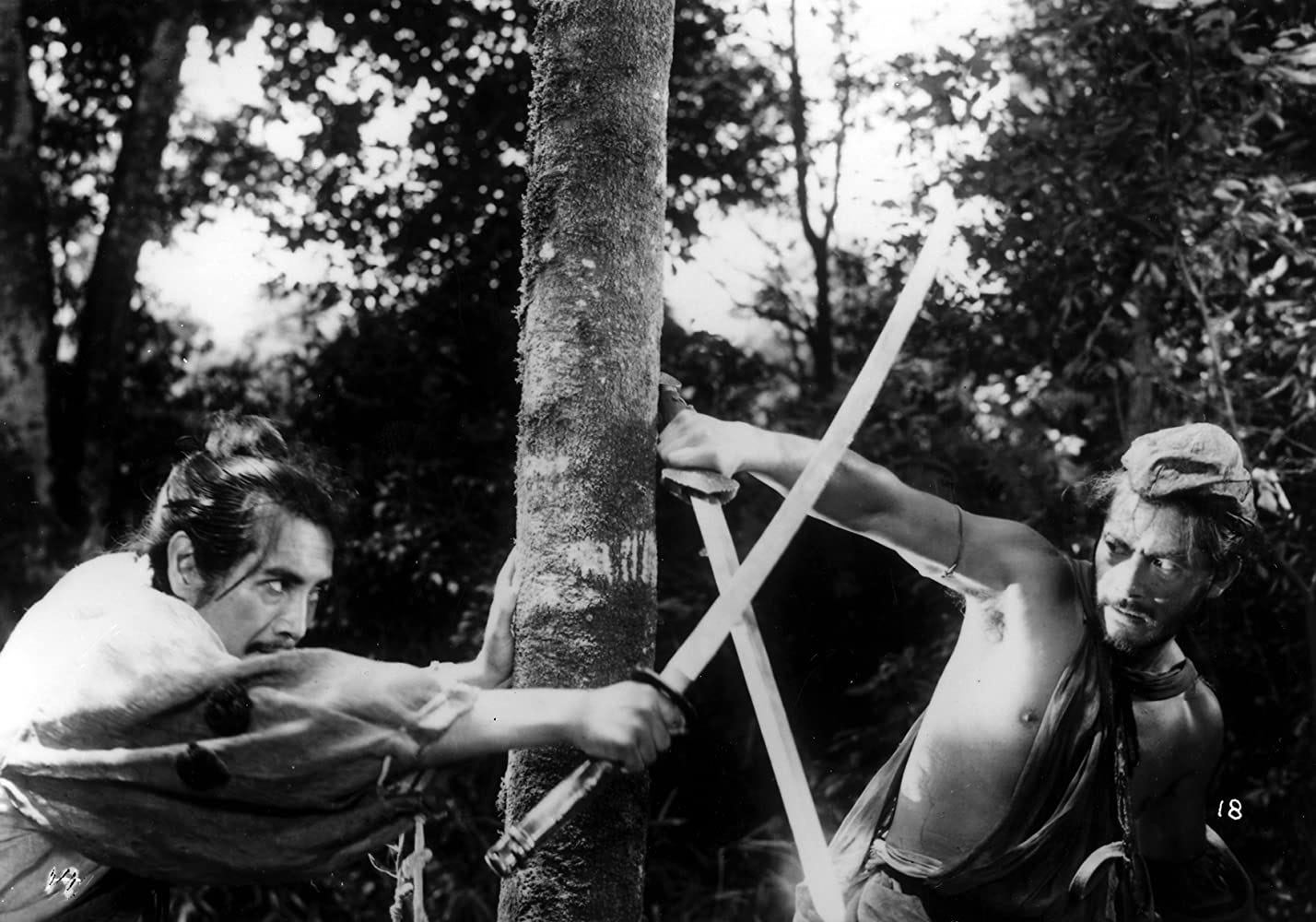
Rashomon is arguably his masterwork. The film revolves around the murder of a samurai, with four individuals brought before justice to give their account of what may have happened. The samurai's wife, a bandit in the forest where he was killed, a woodcutter, and via the use of a medium, the spirit of the samurai himself all testify as to what happened. But all of their accounts are different, leading viewers to determine what they think is true. Winner of an honorary Academy Award, Rashomon is among the most influential films ever made.
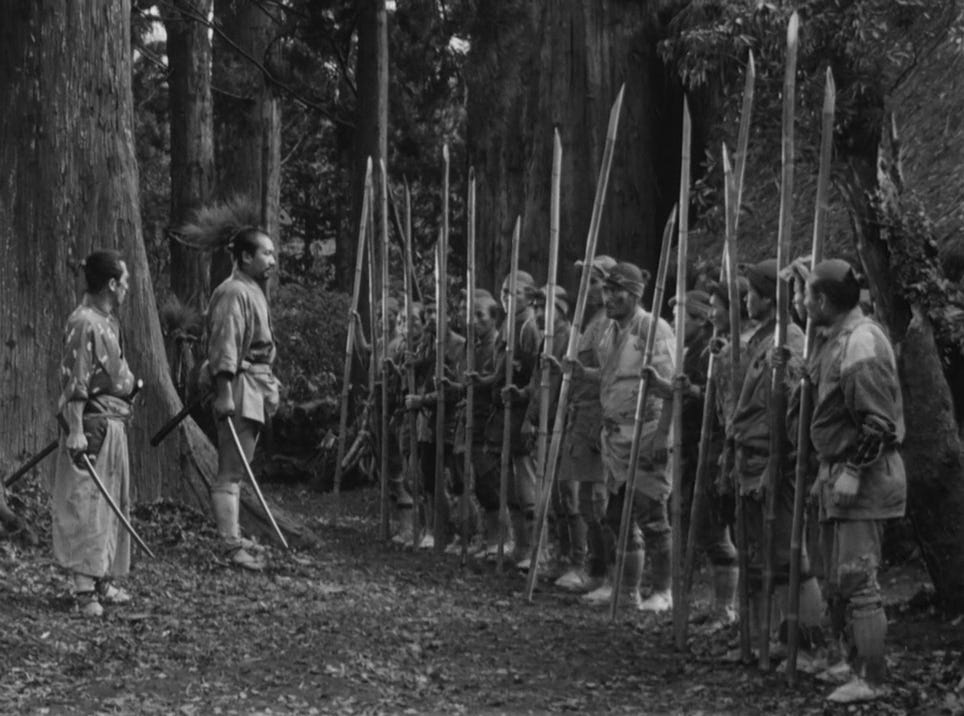
Seven Samurai is perhaps Kurosawa's most well-known film. The 1954 epic follows a band of ronin (masterless samurai) who band together to defend a poor village from the bandits who periodically raid it. A three-hour tour-de-force, the film has been remade twice as The Magnificent Seven, and even as a children's movie in the form of A Bug's Life (1998). For more on Seven Samurai, check out Shifting Expectations for a discussion and dissection of this classic.
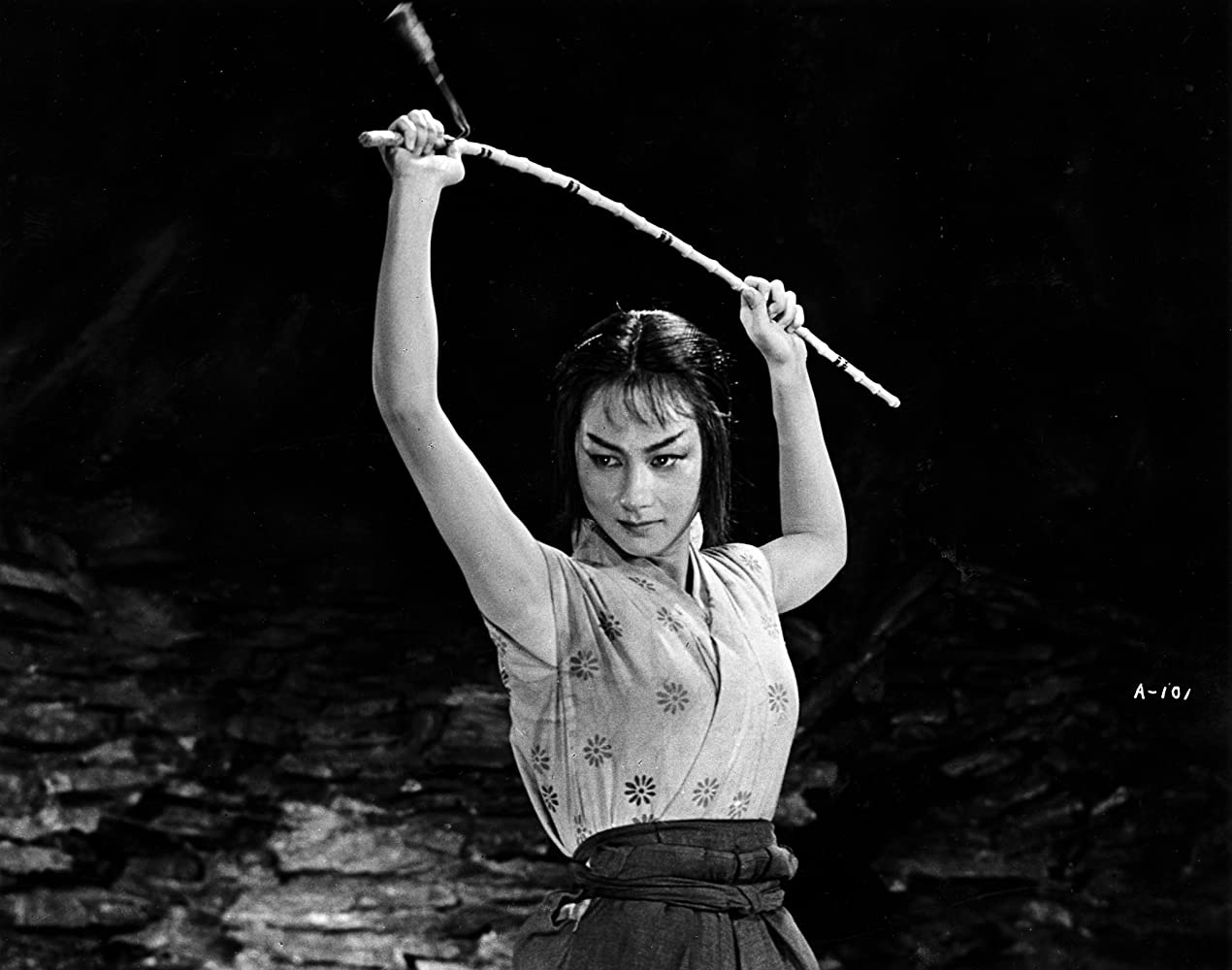
The Hidden Fortress is, admittedly, a relatively lesser work in Kurosawa's filmography. At the very least, Ran and Kagemusha are stronger films. But The Hidden Fortress has one big selling point: it's the film that most directly influenced George Lucas in the creation of Star Wars, which is (in my humble opinion) the most influential film ever made. It's worth watching just to see where modern cinema essentially came from, and to boot, it's a good movie. (Check out Shifting Expectations for a discussion of Star Wars, via Apple Podcasts.)
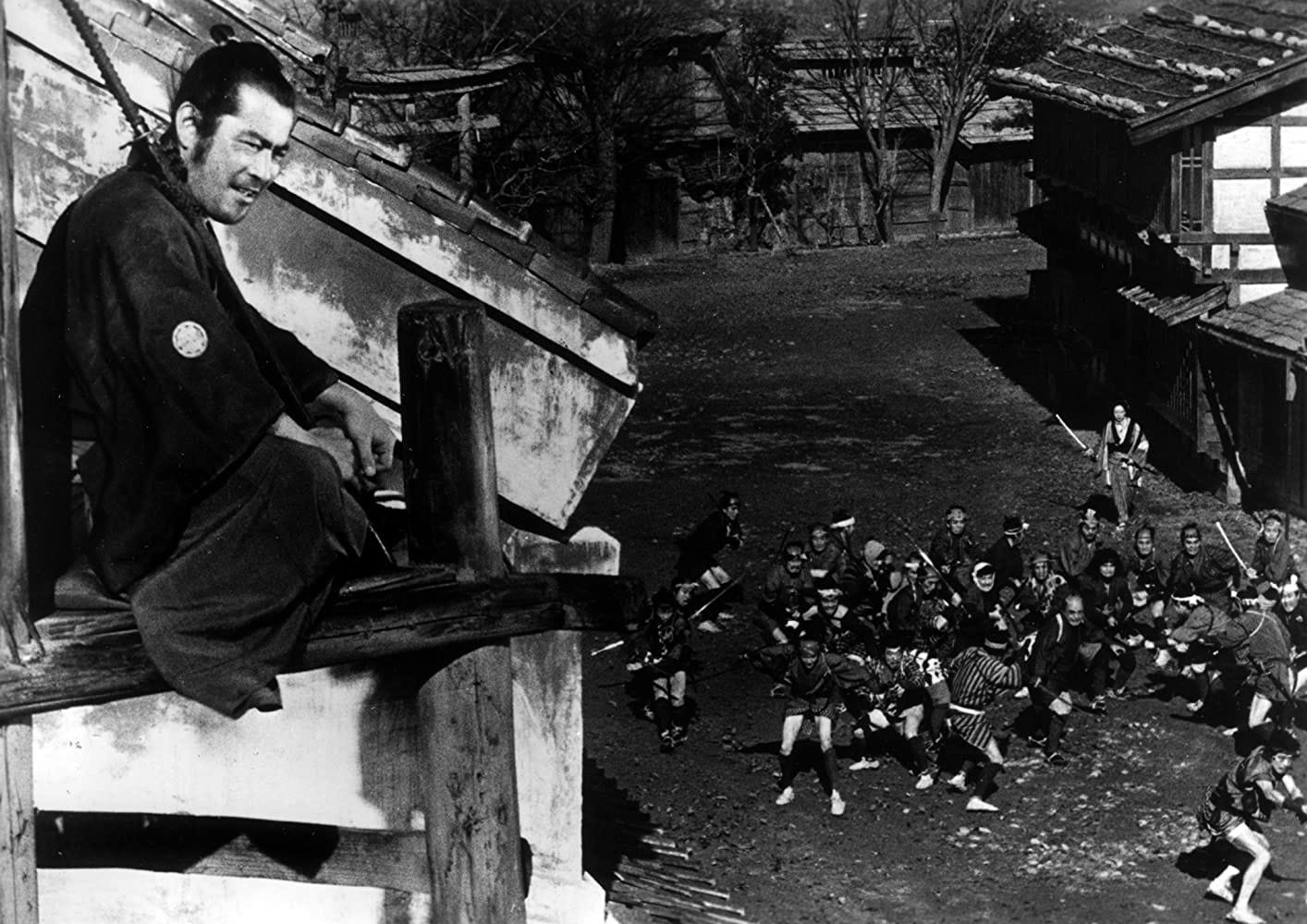
Lastly, there's Yojimbo, another film to which western (and, specifically, Western) cinema owes a great debt. The story of a wandering samurai who stumbles into a town fallen on hard times, the film was a direct inspiration for Sergio Leone to make A Fistful of Dollars. The first entry in Clint Eastwood's "Man With No Name" Trilogy was the subject of a lawsuit from Kurosawa, who famously said "[it's] a fine movie, but it was my movie."
The "Zatoichi" Series (1962-1973)
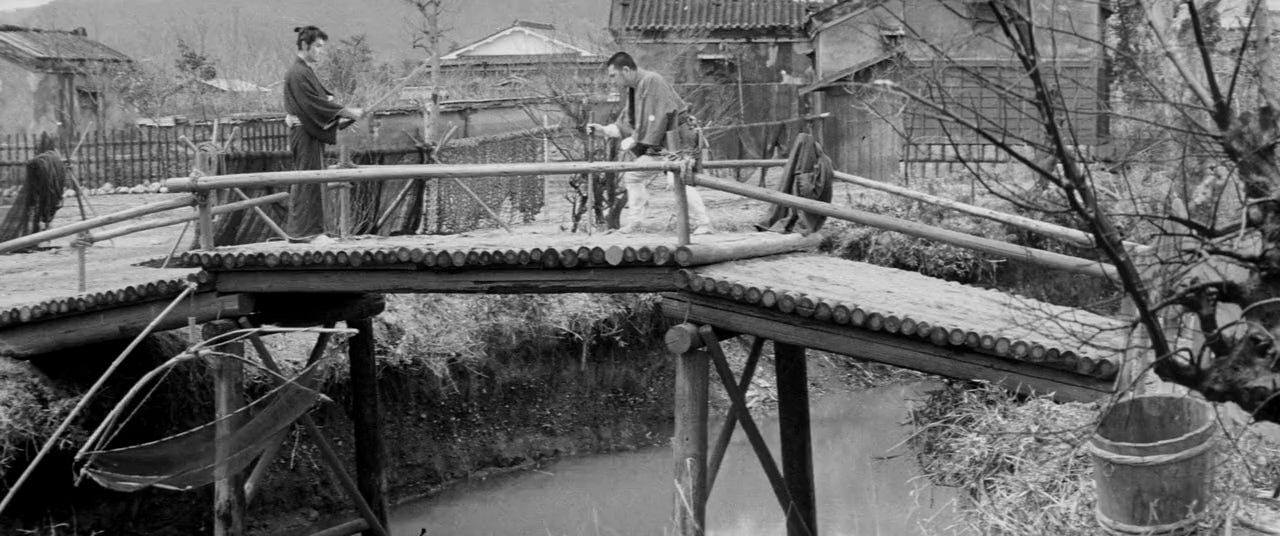
For over a decade, 25 films were made about Zatoichi. The blind wanderer became a cultural icon, a man who spent most of his time as an acupuncturist and gambler but, when provoked, was the deadliest swordsman in Japan. The films vary in quality (I admit, I haven't seen all of them), but the art and skill with which they were made is undeniable. And so is their influence on the genre.
Lone Wolf and Cub (1972-1974)
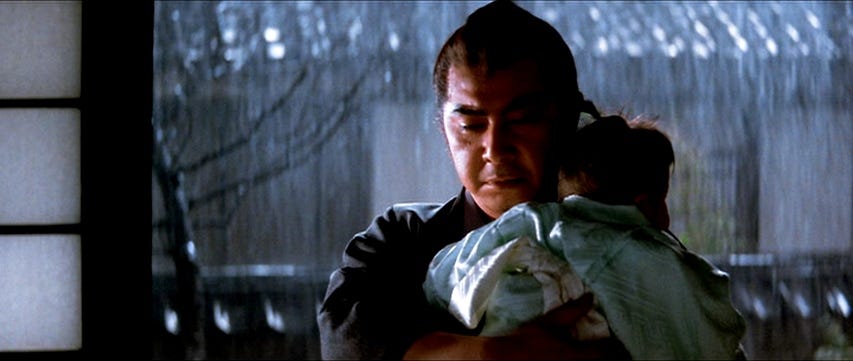
This six-film series, based on a popular manga, stars Tomisaburo Wakayama as Ogami Itto, a nomadic warrior who carries his baby son with him in a wooden carrier. These artful and popular movies were re-edited and released in the US as Shogun Assassin and Shogun Assassin II, but the Japanese originals are the way to go if you want to check these out.
(It's worth noting that all of these aforementioned samurai films are widely available via The Criterion Collection.)

